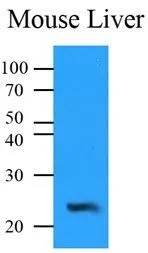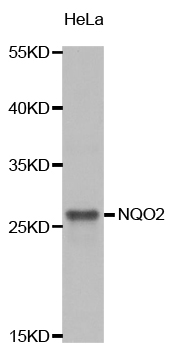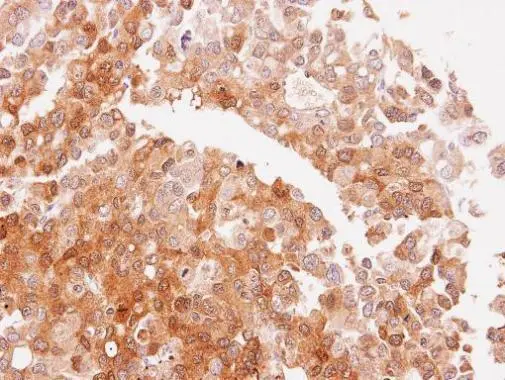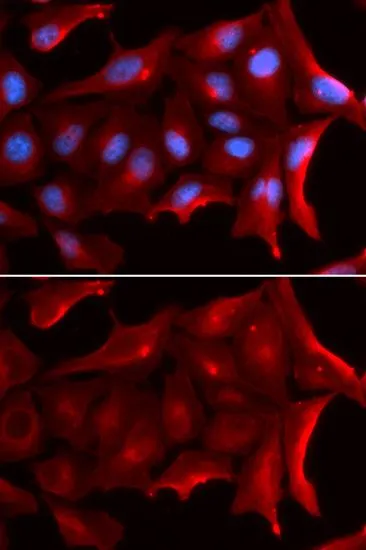
WB analysis of mouse liver lysate (35ug) using NQO2 antibody at a dilution of 1:500.
NQO2 antibody [AT1E3]
GTX53753
ApplicationsWestern Blot, ELISA
Product group Antibodies
ReactivityHuman, Mouse
TargetNQO2
Overview
- SupplierGeneTex
- Product NameNQO2 antibody [AT1E3]
- Delivery Days Customer9
- Application Supplier NoteThe antibody has been tested by ELISA and Western blot analysis to assure specificity and reactivity. Since application varies, however, each investigation should be titrated by the reagent to obtain optimal results. Recommended dilution range for Western blot analysis is 1:250 ~ 500. Recommended starting dilution is 1:500
- ApplicationsWestern Blot, ELISA
- CertificationResearch Use Only
- ClonalityMonoclonal
- Clone IDAT1E3
- Concentration1 mg/ml
- ConjugateUnconjugated
- Gene ID4835
- Target nameNQO2
- Target descriptionN-ribosyldihydronicotinamide:quinone dehydrogenase 2
- Target synonymsDHQV, DIA6, NMOR2, QR2, ribosyldihydronicotinamide dehydrogenase [quinone], N-ribosyldihydronicotinamide:quinone reductase 2, NAD(P)H dehydrogenase, quinone 2, NAD(P)H menadione oxidoreductase-1, dioxin-inducible-2, NAD(P)H quinone dehydrogenase 2, NRH:quinone oxidoreductase 2, quinone reductase 2, ribosyldihydronicotinamide dehydrogenase
- HostMouse
- IsotypeIgG1
- Protein IDP16083
- Protein NameRibosyldihydronicotinamide dehydrogenase [quinone]
- Scientific DescriptionThis gene encodes a member of the thioredoxin family of enzymes. It is a cytosolic and ubiquitously expressed flavoprotein that catalyzes the two-electron reduction of quinone substrates and uses dihydronicotinamide riboside as a reducing coenzyme. Mutations in this gene have been associated with neurodegenerative diseases and several cancers. Alternative splicing results in multiple transcript variants. [provided by RefSeq, Mar 2014]
- ReactivityHuman, Mouse
- Storage Instruction-20°C or -80°C,2°C to 8°C
- UNSPSC41116161






